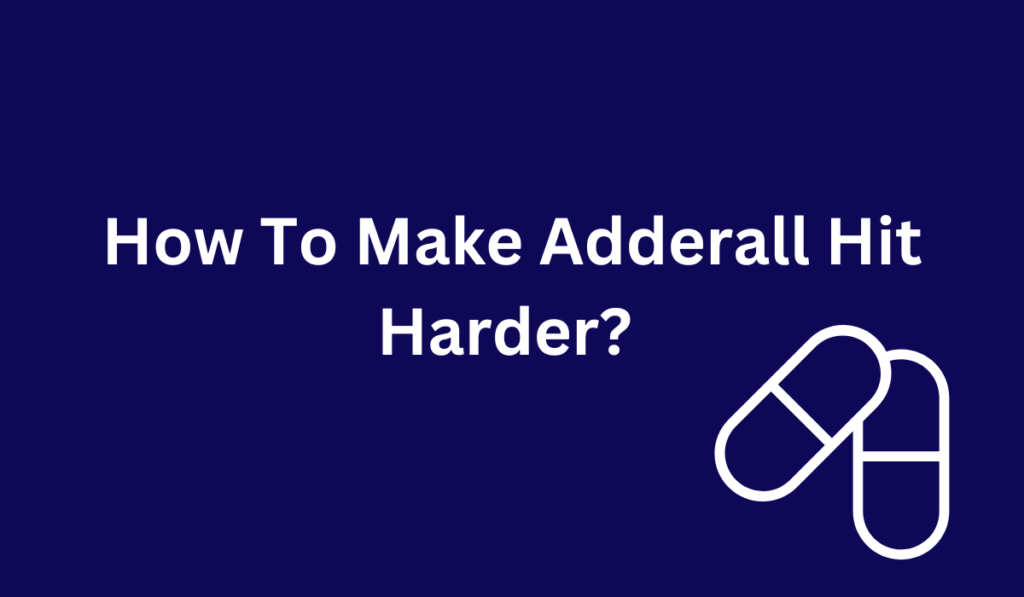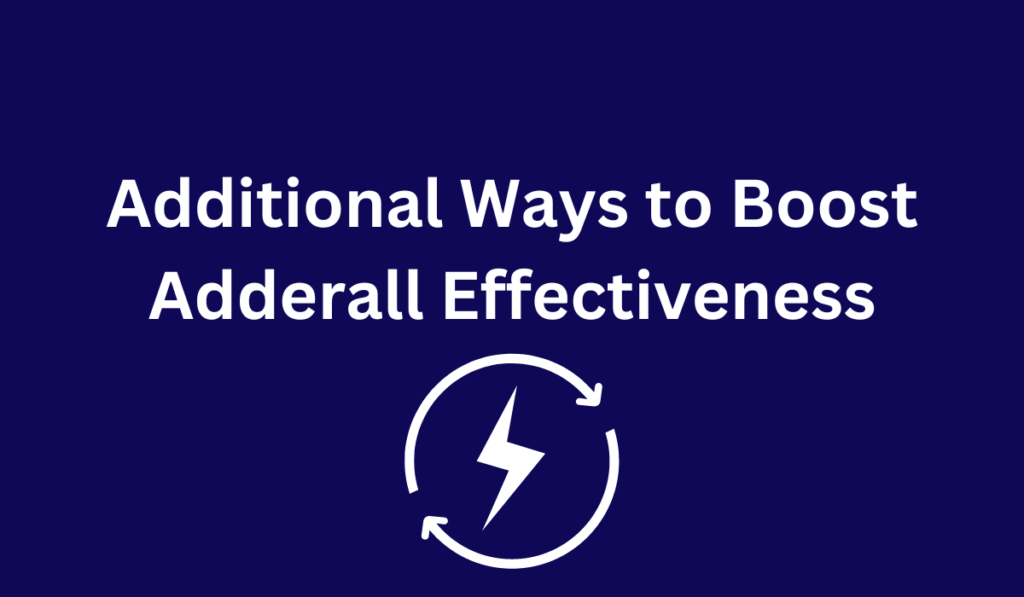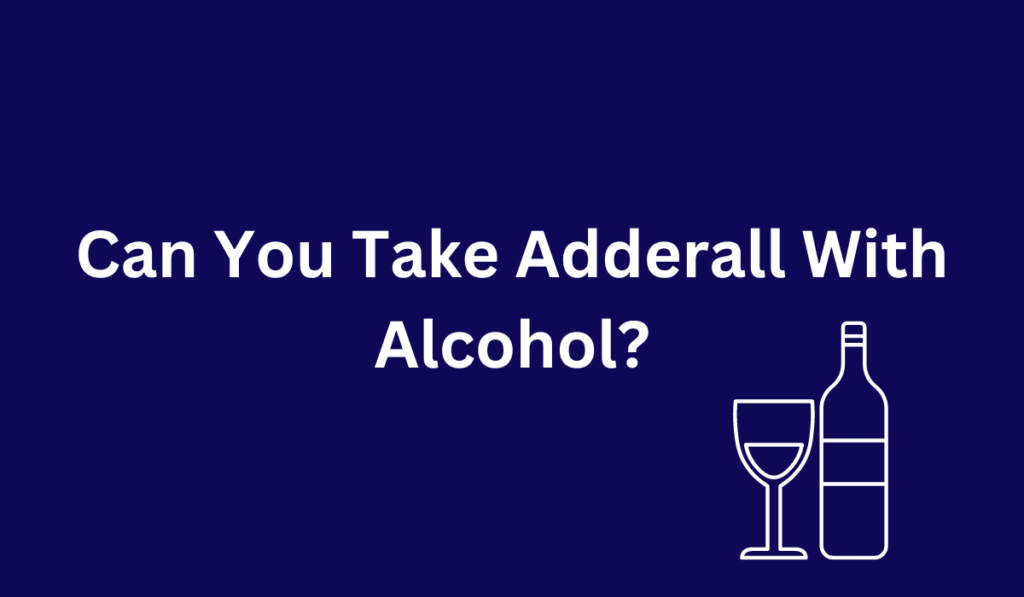
Adderall is a prescription medication used to treat attention deficit hyperactivity disorder (ADHD) and narcolepsy. It is a stimulant that works by increasing levels of the neurotransmitter’s dopamine and norepinephrine in the brain, which are associated with attention and focus.
Adderall is composed of two active ingredients: amphetamine and dextroamphetamine. It comes in both immediate-release and extended-release formulations, which are designed to release the medication into the body at different rates.
While Adderall can be an effective treatment for ADHD and narcolepsy when used as prescribed, it also has a potential for abuse and addiction due to its stimulant properties. It is important to use Adderall only under the guidance of a healthcare provider and to follow the prescribed dosage and instructions carefully.
Individuals who use or misuse Adderall may desire its effects to last longer in their bodies. However, increasing the dosage of Adderall is not a recommended solution as it can lead to potential complications, addiction, and substance abuse.
If someone wants to extend the effects of Adderall, there are various strategies they can employ that do not involve increasing the dosage. In this article, we provide clear and practical guidance on how to make Adderall last longer in the body while minimizing the risks of adverse effects and addiction.
How to Make Adderall Hit Harder?
To maximize the effectiveness of Adderall, it’s important to steer clear of foods that are high in vitamin C, specifically ascorbic acid, and nitric acid. These acids can hinder the absorption of Adderall from the digestive tract into the bloodstream.
It’s best to avoid soda drinks, fruit juices with vitamin C, and foods that contain vitamin C for at least an hour before and after taking Adderall. If you consume supplements or foods with a high dose of vitamin C (over 1000mg), it can essentially deactivate the effects of Adderall, causing the body to excrete all the amphetamine in the urine.
Additional Ways to Boost Adderall Effectiveness

1.Stay Hydrated
Adderall is a medication that contains diuretic properties, which can lead to more frequent urination. This increased frequency can cause dehydration, making hydration an essential factor to consider.
For any medication to be absorbed effectively into the bloodstream, sufficient water intake is crucial. Adequate hydration not only ensures optimal drug efficacy but also helps to prevent brain fog. Without proper hydration, the brain may struggle to concentrate and focus, even if the drug continues to work in your system.
In short, while Adderall may still have an impact on your body without adequate hydration, you may not experience the full benefits of the medication due to the potential for brain fog. Therefore, it’s crucial to stay hydrated to maximize the effectiveness of Adderall.
2. Take Breakfast First
Breakfast is a crucial yet simple meal that can enhance the effectiveness of Adderall. Consuming breakfast provides the body with adequate energy and nutrients, which can help the medication work more efficiently.
It’s not recommended to take Adderall on an empty stomach as it can result in acid reflux or other adverse reactions. Despite the changing trends, it’s advisable to eat something before taking any medication like Adderall.
Even a small, healthy breakfast consisting of foods like almonds, bananas, or toast can suffice and improve the efficacy of the medication.
3. Use Vitamin Supplements
There are various vitamin supplements that can enhance the potency of Adderall and extend its duration of action. However, it’s important to prioritize obtaining these essential nutrients through a balanced diet before considering supplements.
A healthy and nutritious diet provides the body with all the necessary proteins, oils, and vitamins, and ensures overall well-being. When it comes to vitamins, it’s advisable to consult with a healthcare professional such as a doctor or pharmacist before taking any supplements.
They can recommend the most appropriate supplement for you, minimizing the risk of complications associated with vitamin supplementation.
How Long Does Adderall Last In The System
The duration of Adderall in the system can vary depending on several factors, including the individual’s metabolism, dosage, frequency of use, and the type of formulation (immediate-release or extended-release).
Generally, the immediate-release form of Adderall can last for around 4-6 hours, while the extended-release form can remain active for up to 12 hours. However, the drug may continue to be detectable in the system for longer periods.
Factors That Affect Adderall’s Intensity
Several factors can affect the intensity of Adderall’s effects on an individual. These include:
- Dosage: The dosage of Adderall prescribed can significantly influence its intensity. A higher dose may lead to more intense effects.
- Tolerance: Individuals who have been taking Adderall for an extended period may develop tolerance, reducing the medication’s intensity over time.
- Metabolism: The rate at which an individual’s body processes and metabolizes Adderall can affect its intensity. Factors such as age, weight, and overall health can influence metabolism.
- Formulation: The immediate-release form of Adderall may have more intense effects compared to the extended-release form due to its quicker onset of action.
- Concurrent use of other substances: The use of other medications, drugs, or alcohol can interact with Adderall, leading to more intense or unexpected effects.
- Food intake: Eating certain foods or taking supplements that contain ascorbic or citric acid can reduce the absorption of Adderall, reducing its intensity.
Can You Mix Adderall With Coffee?
It is not recommended to mix Adderall with coffee or any other caffeinated beverages. Both Adderall and coffee are stimulants that can increase heart rate and blood pressure, and mixing the two can intensify these effects and increase the risk of adverse side effects such as anxiety, nervousness, and restlessness.
Caffeine can also interfere with the absorption of Adderall, reducing its effectiveness. Therefore, it’s advisable to avoid drinking coffee or other caffeinated beverages while taking Adderall.
Is It Safe To Mix Adderall With Coffee?
While it may not be harmful to consume small amounts of coffee with Adderall, it is generally not advisable to mix the two stimulant drugs.
If you have been prescribed Adderall, it is recommended to limit your caffeine intake as both are stimulants that can cause nervousness and jitters, intensifying some unpleasant side effects. Furthermore, taking them together may result in extreme cases of insomnia.
Combining Adderall and caffeine can be more dangerous for individuals with underlying health issues such as high blood pressure or heart disease. It is also important to note that some individuals may misuse Adderall for non-medical purposes, leading to potential health risks associated with self-overdosing.
Therefore, it’s essential to follow the prescribed dosage and usage instructions carefully and consult with a healthcare professional if you have any concerns about the interaction between Adderall and caffeine or the safe and appropriate use of the medication.
How Adderall Works
Adderall is a prescription medication that is commonly used to treat attention deficit hyperactivity disorder (ADHD) and narcolepsy. It works by affecting the levels of certain chemicals in the brain, including dopamine and norepinephrine.
Dopamine is a neurotransmitter that is responsible for feelings of pleasure and reward. Norepinephrine is a hormone and neurotransmitter that is involved in the “fight or flight” response, which is the body’s response to stress or danger.
Adderall is a central nervous system stimulant that increases the release of dopamine and norepinephrine in the brain. This leads to increased focus, alertness, and energy, which can help individuals with ADHD to concentrate and complete tasks more effectively. It can also help individuals with narcolepsy to stay awake during the day.
Adderall works by binding to the transporters that remove dopamine and norepinephrine from the synapses (gaps between neurons) in the brain. This leads to an increase in the concentration of these neurotransmitters in the synapses, which in turn leads to the beneficial effects of the medication.
It’s important to note that Adderall can be habit-forming and should only be taken under the guidance of a healthcare professional.
How Caffeine Works
Caffeine is a naturally occurring stimulant that is found in many different types of plants, including coffee beans, tea leaves, and cocoa beans. It works by blocking the action of a neurotransmitter called adenosine in the brain.
Adenosine is a chemical that is involved in promoting sleep and suppressing arousal in the brain. It builds up in the brain over the course of the day, and by the evening, it contributes to feelings of fatigue and drowsiness. Caffeine blocks the action of adenosine by binding to its receptors in the brain, which prevents it from causing drowsiness.
In addition to blocking adenosine, caffeine also increases the activity of other neurotransmitters, such as dopamine and norepinephrine. This can lead to increased alertness, improved mood, and increased energy levels.
Caffeine is rapidly absorbed into the bloodstream and reaches peak levels in the blood within 30-60 minutes after consumption. The effects of caffeine typically last for several hours, depending on factors such as the amount consumed, the individual’s metabolism, and their sensitivity to caffeine.
It’s important to note that excessive caffeine consumption can have negative effects, including anxiety, jitteriness, increased heart rate, and difficulty sleeping. It’s generally recommended that adults consume no more than 400mg of caffeine per day, which is equivalent to about four cups of coffee.
Can You Take Adderall With Alcohol?

No, it is not recommended to take Adderall with alcohol. Adderall is a stimulant medication used to treat ADHD and narcolepsy, while alcohol is a depressant that affects the central nervous system.
Mixing Adderall and alcohol can be dangerous and potentially harmful to the body. Alcohol can enhance the side effects of Adderall, such as increased heart rate, blood pressure, and nervousness. It can also increase the risk of cardiovascular problems, including heart attack and stroke.
In addition, alcohol can impair judgment and decision-making, making it difficult to assess the effects of the medication. This can lead to overconsumption of Adderall or alcohol, which can have serious consequences. Here are some of the potential complications that may arise:
1. Alcohol Poisoning
Using Adderall in conjunction with alcohol can diminish the sensation of being drunk, causing individuals to lose track of the amount of alcohol they have consumed. This lack of awareness can result in excessive drinking, leading to dangerous behaviors and even alcohol poisoning.
2. Heart Issues
Adderall has significant impacts on the heart’s functioning, such as elevating heart rate and other related effects. Furthermore, consuming more Adderall than prescribed can put an individual at risk of developing various heart diseases.
When taken with alcohol, this risk is amplified, as both substances can lead to an increase in heart rate, blood pressure, and body temperature. Additionally, one may also experience irregular heart rates.
3. Behavioral issues
Consuming alcohol excessively can lower an individual’s inhibitions and increase the likelihood of exhibiting aggressive behavior. When Adderall is combined with alcohol, both effects may be heightened.
The Adderall Abuse
Adderall abuse refers to the non-medical use of Adderall, a prescription medication used to treat attention deficit hyperactivity disorder (ADHD) and narcolepsy. This abuse can involve taking larger doses than prescribed, taking it without a prescription, or using it in ways other than directed, such as crushing and snorting the pills.
Adderall abuse can lead to a range of negative effects, including addiction, heart problems, and mental health issues such as anxiety and depression. Additionally, long-term abuse of Adderall can cause damage to the brain and other vital organs.
Although Adderall was primarily developed to treat ADHD, it has become increasingly abused by individuals seeking to enhance their productivity, particularly in the workplace. Research indicates that over 7% of adults aged 18-49 abuse the drug, which is concerning.
Moreover, many individuals who abuse Adderall also consume alcohol, further exacerbating the risk of adverse effects. It is essential to use the drug only as directed by a healthcare professional to ensure safety.
Students are the largest group of Adderall abusers, with many believing that the drug can enhance their academic performance and reduce the need for sleep. However, there is no concrete evidence supporting these claims, and the drug’s effects on performance remain unclear.
Conclusion
I trust that the article has provided useful insights on how to maximize the effects of Adderall. Adderall is a stimulant primarily prescribed for individuals with ADHD.
To optimize the drug’s efficacy, it is advisable to avoid consuming foods high in vitamin C and nitric acid. Additionally, the article has highlighted other factors that can enhance the drug’s effectiveness.
However, some individuals abuse Adderall for non-medical reasons, relying on its ability to increase alertness and productivity. Consistent abuse of the drug can lead to severe health complications. It is crucial to use Adderall only as directed by a healthcare professional and to seek help if one suspects they may be abusing the medication.